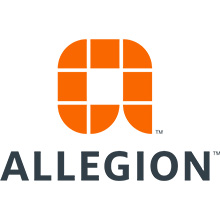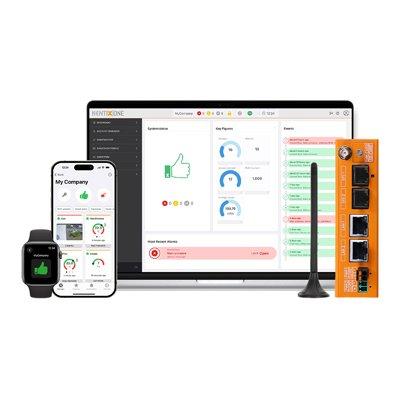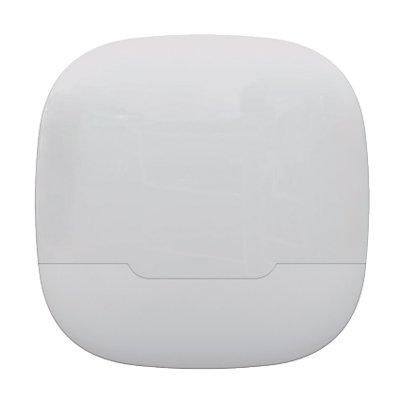 |
| Allegion's sales team can help school administrators find avenues to fund door hardware upgrades |
Allegion PLC, a leading global provider of security products and solutions, is celebrating this year's Safe School Week (October 19-25) by encouraging its security/architect partners and school end-users to be aware of new and untested security and lockdown products that could actually put staff and students at greater risk. It's important for school administrators, emergency personnel and parents to know which campus security methods are effective and which should be avoided.
"Students and teachers are about 30,000 times more likely to experience a non-fatal violent assault or theft-related crime in school rather than a fatal active assailant," says April Dalton-Noblitt, director of vertical marketing, Allegion. "It's important to protect students and staff from a violent intruder, but schools must also protect them from more likely causes of harm. These include student-on-student or student-on-teacher violence or uncontrolled access to property."
According to Dalton-Noblitt, security providers, school facility administrators and parents should avoid adopting products or practices that might actually put students and staff at greater risk of harm, including -
- Door hardware that forces an individual to step out of the room to lock the door, exposing that person to the intruder or conflict in the hallway.
- Hardware with "unrestricted ability" to lock or unlock the door. This lets anyone - including students - take control of an opening.
- Magnets or tape on the door to prevent latching. Not only is this a code violation if the door is fire-rated but, in lockdowns, one wants the door to latch without having to open the door first.
- School doors that don't automatically close or can be left propped open, potentially preventing them from being in a ready position during an emergency lockdown.
- Security devices that are not permanently attached to the door, requiring staff to locate and attach the device in the midst of a lockdown emergency where seconds count and physical and emotional stress is extreme.
- Hardware that slows or prevents egress during an emergency situation.
- Devices which attach to the door closer arm to prevent the door from being opened. This is a violation of the egress codes.
- Floor bolts or other devices that obstruct the door and don't let it close.
- Anything that prohibits entrance or restricts the normal function of the door hardware by emergency responders.
- Any option that might be accessed or used by an unauthorised person acting with ill-intent. This could be a student, visitor or another staff member.
"Regardless of a school's available budget, we want administrators to know that there are affordable, reliable safety measures that can be taken to minimize threats of violence," says Dalton-Noblitt. "For instance, the Schlage CO-220 lets teachers remotely lock down a classroom from anywhere in the room with the touch of a button. A built-in indicator lets a teacher or first responder easily see that the lock is engaged, without having to approach the door. And because the lockdown is triggered by a key fob the teacher wears on a necklace, there is no chance of a student getting unauthorized access and locking classmates inside the room."
Through a free school security assessment, Allegion's sales team can help school administrators find avenues to fund door hardware upgrades that will provide the right type of security for any school today. In addition to state and federal grants, many schools take advantage of the federal government's Cooperative Purchasing program to secure discounted pricing and pre-vetted vendors. These options help schools make decisions that will enhance security and mitigate risk.





















